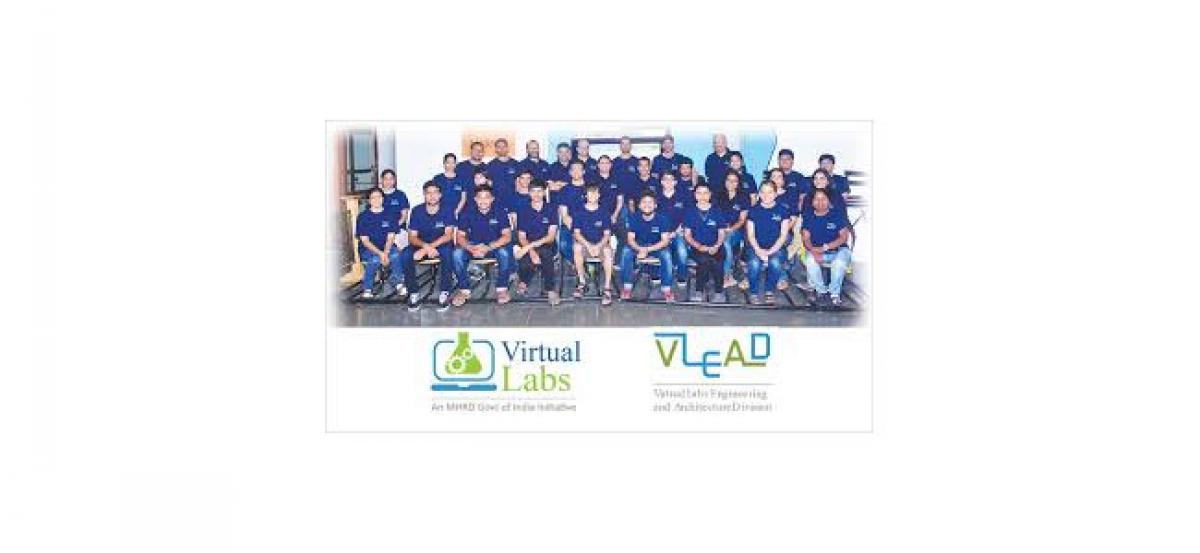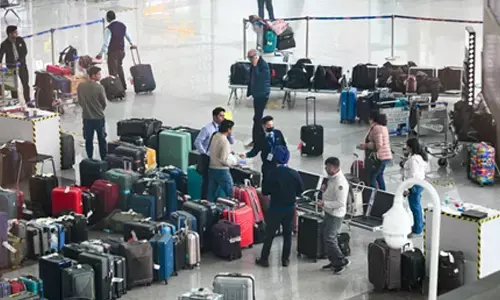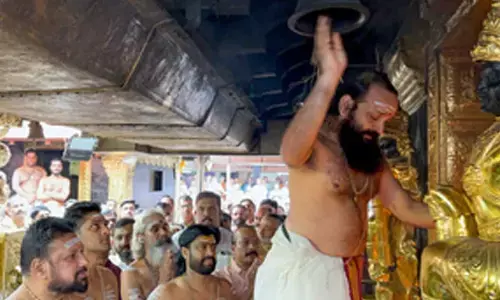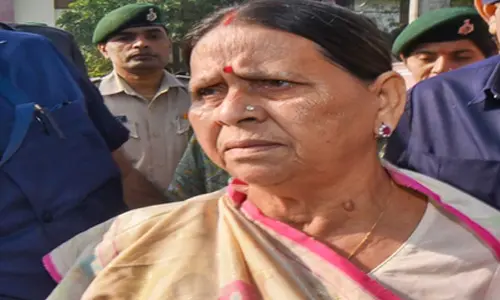March towards digital scientific education

The importance of an ICTdriven education in todays computerpervasive world cannot be stated enough Forget accessing online theoretical content anytime anywhere Imagine being able to simulate or trigger a sophisticated experiment online with access only to a computer and an internet connection
The importance of an ICT-driven education in today’s computer-pervasive world cannot be stated enough. Forget accessing online theoretical content anytime anywhere. Imagine being able to simulate or trigger a sophisticated experiment online with access only to a computer and an internet connection.
Now imagine that happening in physically remote rural areas where traditionally there are no technical institutes at all or existing institutes have neither the resources to set up such expensive equipment nor the faculty to drive it. Such a scenario has far reaching implications in the field of Science and Technology, doubly so in the Indian context.
Virtual Labs at IIIT-H
The Virtual Labs project is being developed and maintained in partnership with the IITs of India and other institutes such as IIIT-H, Amrita Vishwa VidyaPeetham, College of Engineering, Pune, Dayalbagh Institute, and NIT Suratkal. There are over 114 labs spread over 11 domains from Mechanical Engineering and Material Sciences to Aerospace Engineering and Physical Sciences.
Why, it even has labs on Virtual Anthropology and Virtual English and Communication under Humanities! The participating institutes build a set of experiments related to a theme or a topic which are then grouped as a lab. In keeping with IIIT-H’s core focus on Computer Science and Electronics, the labs developed by this institute are mainly related to Problem Solving, Data Structures, VLSI, Language Processing, Pattern Recognition, Artificial Neural Networks, among others.
AdvantFages
With All India Council for Technical Education (AICTE) also mandating the use of virtual labs in technical education, digitized experimentation has got a shot in its arm. In situations where it is physically impossible to recreate real-life scenarios, virtual labs come in handy. “While in the case of Computer Science, there may not be much of a difference between an experiment online and the actual working in real-time, in non-Computer Science fields, there are huge advantages in using virtual labs, “ says Ravi Shankar, Program Manager of Virtual Labs and the Outreach Co-ordinator at IIIT-H.
Recounting a recent experience during a demo at a nodal centre, he says that one of the faculty members jumped out of his seat, delirious with joy. “He said ..this is what I’ve been trying to explain to the students..how the Eddy current distribution works, but I could never do that...something that is real. This way, these labs become a strong addition to the current methodology of teaching such topics which faculty is finding very useful”.
VLEAD
The VLEAD, Virtual Labs Engineering and Architecture Division of IIIT Hyderabad, is one of the several teams working on the Virtual Labs project. VLEAD’s mandate is to design and build the implementation framework for Virtual Labs, providing all kinds of infrastructure support and services to lab developers. The central engineering platform, for hosting over 825 experiments created by the partner institutes on the cloud, was developed by IIIT-H. It provides the server side architecture for ensuring that virtual labs run securely, can effectively serve thousands of students simultaneously, and reserve time slots for experiments that require scheduling. It also provides tools to help teachers monitor their students’ progress and make changes to the instructional material.
Digital Classroom: A relatively new facility that IIIT-H as well as other institutes associated with Virtual Labs can use is the digital classroom. It is a fully sound-proofed room with a seating capacity of 20 that is used for recording and live streaming of lectures, training sessions and workshops. According to Ravi, demos that are traditionally given on-site in physical locations as part of Outreach can be recorded here and the link can be uploaded on the platform.
Transforming challenges into opportunities
One of the biggest challenges for the virtual labs project has been the less than envisioned usage. Priya Raman, Program Manager, says that it could mean many things. Either the branding or the outreach is not effective enough. Or bandwidth could be an issue, especially in tier-2 and tier-3 colleges, or the fact that alignment with syllabi is missing. She explains how the project has evolved through the phases so far, saying that in phase 1 when labs were being developed, there was no central platform for integrating all of them. Experiments were developed and hosted but there was no process followed.
No source code. When the creators of the experiments left, typically PhD students, the code went with them. While there is no paucity of content itself, with the source of the content missing, Priya rues that it posed a huge challenge to change and improve upon the original material. That was when it was decided to have a central engineering platform for hosting all the experiments. They tried to first salvage whatever code they could and put it in an open source repository. “No content now is proprietory. Anybody can access it, anybody can contribute. In fact, it is this culture of open source that we are promoting,” she says. They are moving towards making everyone contribute towards the project. And one of the ways is in the internship offerings. In Phase 3, the goal is to lighten the portal itself to make it faster and more efficient.
Outreach local colleges
All the experiments uploaded on the platform aim to either supplement or complement existing curricula. With the ultimate intent of every student using this technology, the project plans to penetrate to all the engineering colleges across the country via a network of nodal institutions or institutions interested in participating in the outreach programme. Each nodal institute is headed by a nodal coordinator.
These co-ordinators are trained via workshops conducted in the partner institutes. The co-ordinators later conduct workshops in their own colleges and other institutes in close physical proximity to them. From trying to propagate its usage across institutes in India (or what is termed the “push” mode), Ravi says that they are noticing a visible shift towards the “pull” mode where institutes in tier-2 and tier-3 cities are evincing interest and requesting workshops to be conducted.
Bugathon & Internships
One way of attempting to improve participation from these nodal centres is an incentive in the form of internships offered to students of these colleges. At the recently conducted Bugathon, 117 students across 8 colleges participated in a day-long immersive exercise of identifying and fixing bugs on the virtual labs platform. Around 1500+ bugs were identified across all categories. Before these bugs can be assigned for fixing, students are first taught about open source technologies (GitHub, JavaScript, Java, Python and others) and the software lifecycle process and other tools followed by VLEAD through a 3-day bootcamp. Following this, students get bugs assigned to them regularly which they can address from the comfort of their own homes.
They typically come to the IIIT-H campus once a week to interact with the VLEAD team for clarifications or advice on tackling technical difficulties. Sarika, a 2nd year BTech student from Vasavi College of Engineering who is currently interning at VLEAD says, “The selection process for this internship was completely new for me and a different experience to have. Not only is it giving me a great exposure as to how it would be stepping outside our college and how the work would be, I’m enjoying the unique opportunityto contribute to the “World’s largest virtual labs open repository”.
Summer internships
Similar to the outreach internship is the summer internship at VLEAD where interns are selected based on the number and weight of the bugs or enhancements logged by interested candidates. This is a residential programme open to engineering students across India, where not only do participating interns get a certificate but also walk away with surprise prizes and cash prizes for being the top contributors towards fixing issues. It is an amazing opportunity for students to collaborate and work together towards an accessible and inclusive scientific education, avers the VLEAD staff. For more information, go to vlab.co.in and dev.vlabs.ac.in














